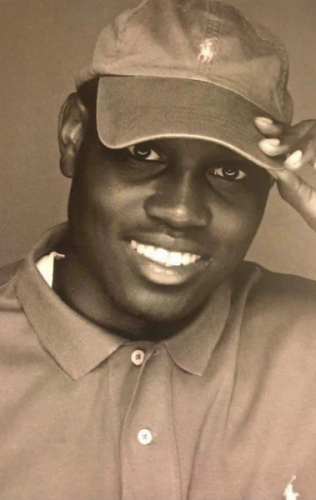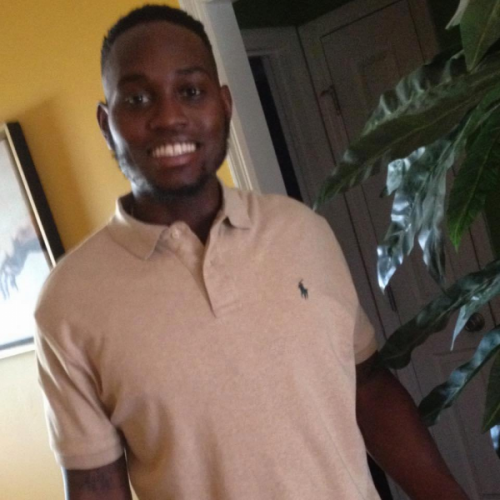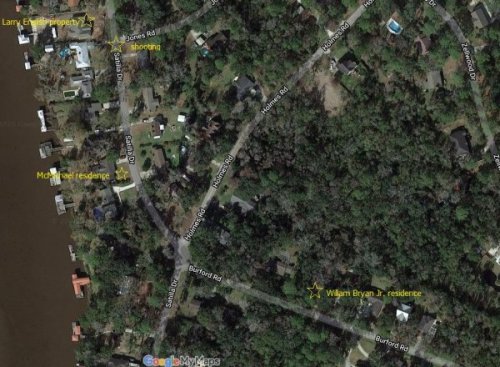A father and son were arrested and charged with the murder of Ahmaud Arbery. The case speaks to how quickly things can go wrong when citizens stand in for cops.

www.csmonitor.com
A modern posse shot Ahmaud Arbery. Has stand your ground gone too far?
Why We Wrote This
Killing an unarmed black jogger in broad daylight? The case of Ahmaud Arbery speaks to a thread of vigilantism that can spin out of control when citizens think they should stand in for cops.
By Patrick Johnson
Savannah, Ga.
May 8, 2020
The two white men said they were justified in killing the unarmed black man who was jogging through their Georgia neighborhood. They never denied doing it, and one district attorney also saw nothing wrong, calling the shooting “perfectly legal.”
On Thursday, however, the two men were arrested and charged with murder by the Georgia Bureau of Investigation. The case turned dramatically when a video of the killing – made by a colleague of the two men – surfaced online.
The story of how a fatal shooting in broad daylight could go from something dismissed as of no legal consequence to murder – and why that shift took two months – has many layers. But at its core is the question of whether certain laws are providing cover for racist acts of violence.
Ahmaud Arbery was confronted and killed by what amounted to a modern-day posse. The case has echoes of 2012, when a neighborhood watch volunteer in Sanford, Florida, killed Trayvon Martin – a black teenager in a hoodie – after falsely assuming he might be a criminal. He was protected by the state’s “stand your ground” law, which allows citizens to use lethal force when they deem a situation to be life-threatening.Now, Mr. Arbery’s death has again put a spotlight on self-defense and arrest powers, as well as the racial effects of laws that condone the open carry of weaponry.
https://www.csmonitor.com/USA/Polit...eniors-virus-is-shifting-their-views-of-Trump
“This is such an egregious example of an abuse of the citizen’s arrest statute and a twisting of the ‘stand your ground’ law, that it will force people to think a little,” says Joëlle Anne Moreno, a professor at Florida International University College of Law in Miami.
What happened that day
The facts of the case are not significantly in dispute. Father and son Greg and Travis McMichael pursued Ahmaud Arbery when they saw him running through their neighborhood in Brunswick, Georgia. Police files indicate that they considered themselves in “hot pursuit of a burglary suspect.”
When the two men confronted Mr. Arbery – with a third colleague in a truck nearby, recording the video – a struggle over Travis McMichael’s shotgun ensued, and Travis McMichael shot him.
A new report by the Atlanta Journal-Constitution Friday suggests that the father, Greg, knew Mr. Arbery from his time as a police detective and was convinced that a surveillance video of a recent burglary showed Mr. Arbery. In high school, Mr. Arbery was sentenced to five years probation on charges of carrying a weapon on campus and several counts of obstructing a law enforcement officer, the Journal-Constitution notes. He was charged with shoplifting in 2018, violating his probation, the paper adds.
Greg McMichael “said he planned to make a citizen’s arrest,” the Journal-Constitution writes.
Regardless of Mr. McMichael’s assertions, the manner in which he and his son pursued them is deeply troubling.
“They just meted out a death penalty to this guy for what, at worst, is a crime of breaking and entering,” says Bob Spitzer, author of “Guns Across America.” “It’s a half-step away from a lynching.”
Mr. McMichael’s supposed evidence linking Mr. Arbery to burglary is also problematic on many levels.
“They said he was a suspect – well, anybody can be a suspect,” says James Yancey, a defense attorney in Brunswick. “There’s no indication that either one of the McMichaels were threatened, about to be threatened or where anything dangerous was going to happen to them – there’s no evidence of that. Instead, we’re left to say, ‘There’s this thing called a phone and this number called 911.’”
It turns out someone did call 911 to report a black man running through the neighborhood. That caller, too, suspected some kind of crime. But the dispatcher struggled with the caller’s inability to articulate evidence of a crime.
“I just need to know what he’s doing wrong,” the dispatcher said.
John Bazemore/AP/File
Capitol police clear protesters from the office of Sen. Jesse Stone, Feb. 10, 2014, in Atlanta. The protesters were calling for an end to Georgia's "stand your ground" law. Several people were arrested after refusing to leave.
Citizen’s arrests
For these reasons, the right of citizens to arrest fellow citizens focuses on the need to actually witness the crime. The legal principle is rooted in English common law dating back to 1285, which empowers anyone witnessing a crime to make a “hue and cry” against the criminal. The role of citizens in law enforcement, however, has declined as police officers have taken over the arrest function for the state and as the desire for accuracy has increased.
Unlike citizens, “peace officers were given greater leeway to investigate and arrest for criminal conduct that they did not personally witness, the presumption being that those responsible for enforcing the law were presumptively more reliable than the average private citizen,” writes Ira Robbins, a professor at American University’s Washington College of Law, in a 2016 journal article.
One lesson from this incident might be that once citizens engage, it can be hard to de-escalate a situation. In April, the RAND Corp. released a report recommending that s
tates rescind stand-your-ground laws because they increase homicide rates.
“There’s a study that shows people honestly believing that they’re engaging in self-defense, but actually engaging in assaults or brandishing or murder, which ties together a lot of what we’re seeing with open carry that looks like intimidation rather than what is protected by law,” says Joseph Blocher, a professor at Duke University School of Law. “In other words, once the fight starts, the self-defense argument is available to everybody.”
Whether Mr. McMichaels engaged because of racism or simply as a former cop – “either way, it’s still violating the law,” says Professor Blocher.
“We need a change of heart”
To some, the broader conversation around law and order today is helping to fuel vigilante justice.
“When people are being taught by ... the NRA that they are the ones responsible for standing up to criminals and tyrants, and that you can’t trust the government to do it for you, it encourages people to take the law into their own hands, be armed, and act upon their fears and prejudices,” says Adam Winkler, a professor at the University of California at Los Angeles School of Law.
But for Mr. Yancey, the Brunswick defense attorney and an African American, what is most needed is a change of heart.
He tells of how, during a hurricane in 2007, his son and his white roommate went outside to check on a truck. A police officer emerged from his cruiser, pointing his handgun at Mr. Yancey’s son and asking the white friend to explain what was going on.
“God has given me this phrase: condition of the heart,” says Mr. Yancey, who attended segregated schools in the area until eighth grade. “When my white friends and white church members say they don’t see color, I tell them, ‘Then you need to get your eyes checked because that means you don’t see me at all, even when I’m standing right here in front of you.’
“The question is, what do you think in your mind when you see that person? What is in the abundance of your heart? To get past the stronghold of racism, we don’t need new laws or another court case. We need a change of heart.”












 I said I did something I rarely do and judged a book by its cover because in my opinion that is what they had done with Arbery.
I said I did something I rarely do and judged a book by its cover because in my opinion that is what they had done with Arbery.